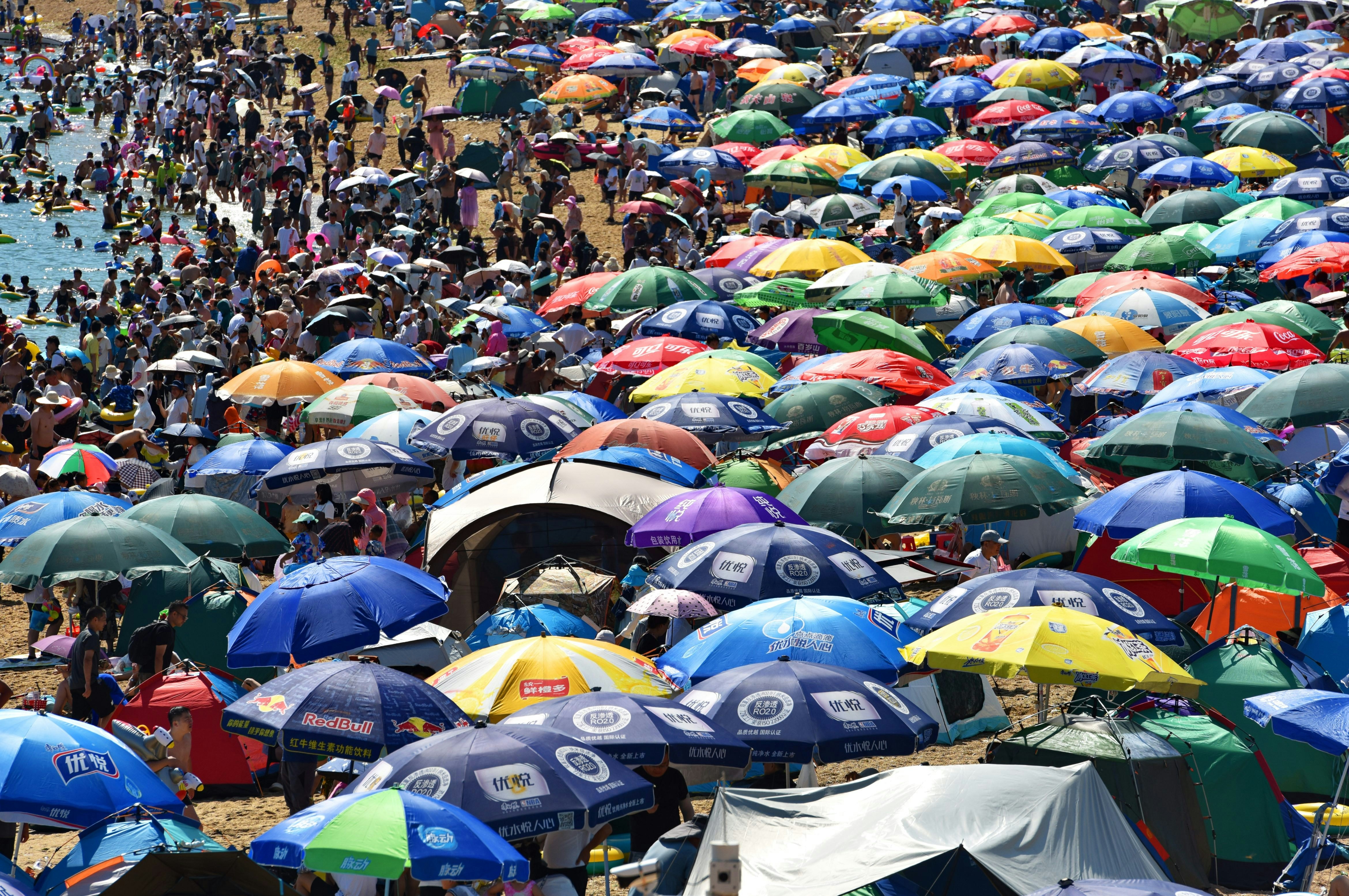Is it safe to visit Europe during the heat wave? Will you be compensated if travel plans are impacted?

Jul 18, 2023 • 6 min read

Much of southern and eastern Europe is baking under hotter-than-average July temperatures © Antonio Masiello / Getty Images
Temperature records are expected to be broken across much of Europe this week as an extreme heat wave takes hold of the region. Several Italian cities, including Rome and Florence, have been placed on a red alert due to increasing daily temperatures, and wildfires are forcing evacuations in Greek resorts, Swiss mountain villages and the Spanish island of La Palma.
In an unprecedented move, Greek authorities have taken the extraordinary step of closing the Acropolis during the hottest part of the day, aiming to protect people from the blazing sun as Athens experiences blistering temperatures soaring to 48°C (118°F).
Here’s what you need to know about the current heat waves, when they might end, how to protect yourself when traveling and what compensation you’re entitled to if your plans are impacted.

When will the current heat wave end?
Parts of southern and eastern Europe are currently experiencing a heat wave dubbed “Charon,” which is caused by an area of high pressure moving in from north Africa. Italian weather experts have described it as “the most intense heat wave of the summer and also one of the most intense of all time” as per The Local Italy.
Higher-than-average temperatures are anticipated to persist until the end of July, possibly extending into early August. However, the peak of the Charon heat wave is expected to occur on Wednesday, July 19, with record-breaking and potentially deadly temperatures forecasted. Parts of the Mediterranean including Spain, Sardinia, Sicily, Croatia, Turkey and Greece are expected to be the hardest hit areas on Wednesday, according to the European Space Agency.
The oppressive heat is not a new phenomenon in this region, which for most of July has sizzled under a high-pressure dome that has trapped stagnant heat and humidity inside. According to the Red Cross, Europe is among the fastest “heat wave hot spots,” experiencing temperature increases at a faster rate than the global average. Charon is the second heat wave to strike this month, following the Cherbus heat storm of last week.

Is it safe to travel?
If you’re in a region that is experiencing high temperatures, it’s best to stay up-to-date on local news alerts to stay safe as the intensifying heat triggers disruptions and dangerous conditions. In Italy, most cities and provinces will be on the highest alert on Wednesday, according to The Local. The alerts ask that people avoid direct sunlight between 11am and 6pm. Similarly, El País reports that many Spanish provinces, including parts of Catalonia, Valencia, Andalucía and the popular holiday island of Mallorca, are on alert due to excessive temperatures sweeping the country.
Rome broke its temperature record today and the Cardarelli Hospital in Naples experienced its busiest day today since the height of the COVID pandemic as people visit its emergency room with heat-related illnesses.
Popular tourist attractions aren’t escaping the heat’s impact – so you might encounter disruptions to your plans. In Greece, for example, authorities have closed off the Acropolis between noon and 5pm, the hottest part of the day. Visitor numbers are also being capped there to safeguard people from queuing in the heat. Public access to nature reserves and forests is also currently banned in Greece during the heat wave due to the continued risk of wildfires.

Some parts of Europe are bearing the brunt of the heat wave more than others, which means sotraveling there obviously comes with greater risks. The situation in La Palma, one of Spain's eight main Canary Islands, remains dangerous as firefighters struggle to contain wildfires in the northwest of the island. Thousands of residents and tourists have been evacuated since Saturday. Wildfires are also ravaging coastal towns in southern Greece and the greater Athens area, as well as Swiss villages in the canton of Valais, a popular destination for mountain hiking in summer.
Yet it’s not just Europe experiencing these extreme conditions at the moment. In South Korea, heavy rains have triggered flash flooding and landslides that have killed at least 40 people. India is also suffering the brutal impacts of monsoon rain. Thousands of people have been evacuated from the capital Delhi as the area recorded its wettest July day in 40 years last Wednesday.
Meanwhile, concerns arise as parts of China face the looming threat of drought, following the record-breaking temperatures of 52.2°C (126°F) recorded in the northwest township of Sanbao on Sunday. Similarly, blistering temperatures are engulfing the southwest USA, with no sign of relief coming anytime soon.

If I cancel my trip because of the heat wave, will I get a refund?
It’s unlikely. Compensation is usually only offered if a state of emergency lasting more than a few days is declared in specific destinations – but that has not occurred in the case of the current heat wave. “Since a heat wave is a weather-related event and not typically considered a covered reason for trip cancellation, travelers may not be eligible for reimbursement of their trip expenses if they choose to cancel solely due to extreme heat conditions, understandable as those concerns may be,” Jonathan Frankham, the UK and Europe general manager of World Nomads, tells Lonely Planet.
“However, it’s important to note that travel-insurance policies can vary significantly, and some policies might offer optional add-ons or upgrades that could include more extensive coverage for specific weather-related events,” he explains. “Travelers should carefully review their policy documents and reach out to their travel insurance provider or agent to understand the coverage available to them and any optional enhancements they can consider.”
Even though you won’t get a refund for trip cancelation, there are other ways you can receive compensation if your travel plans are impacted by the heat. For example, heat-related medical emergencies and illnesses such as heatstroke or heat exhaustion generally are under most policies. Travel insurance with trip interruption is also helpful in times like this because you’re usually reimbursed (depending on your policy) the cost of unused travel arrangements if the heat makes you unable unable to continue with your planned itinerary.

Heat waves and climate change
The frequency of heat waves this year has been linked to climate change, as emphasized by a recent study conducted by the UK Met Office. The study warns that these weather events could become as common as every other year by the 2050s. Dr Melissa Lazenby, a climate-change lecturer at the University of Sussex, affirms that we should anticipate more occurrences of extreme weather events like this. Speaking to Lonely Planet, she warns it may mark the beginning of a new normal unless emissions fall significantly.
“Intense and prolonged heat-wave events are increasingly expected and are now occurring regularly in specific regions such as Europe and China. Climate experts have a clear understanding of these extreme heat events and there is a high level of certainty that they will become more frequent and intense as our planet continues to warm due to human activities.”




